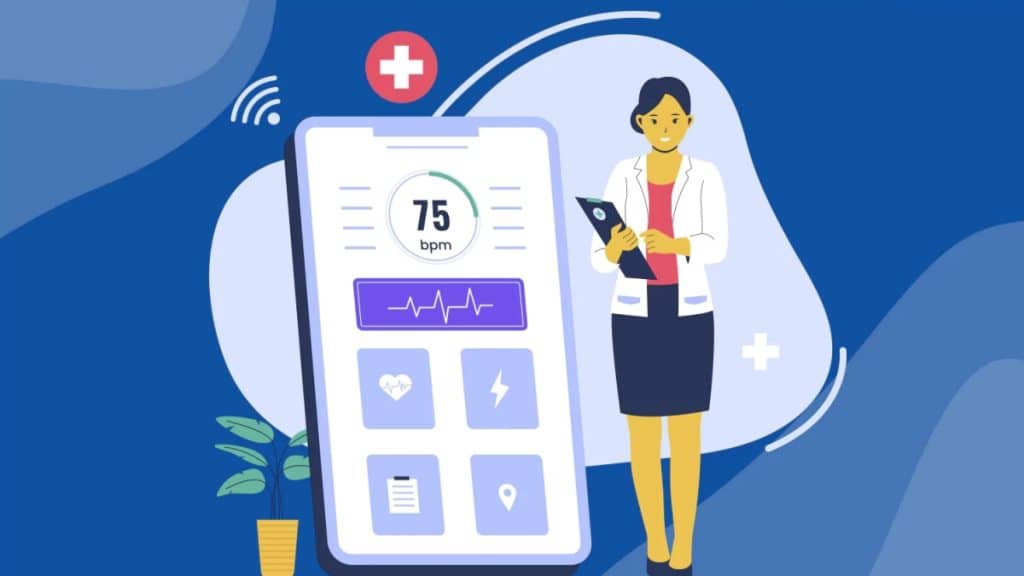Introducing Virtual Assistance (VA) technology has changed industries, especially healthcare. The introduction of DocVA, a healthcare assistant, has led to notable improvements in efficiency, accuracy, and patient satisfaction within the sector. This in-depth analysis of DocVA will explore its impact on healthcare delivery, features, advantages, potential obstacles, and future outlook.
The Progression of Healthcare Virtual Assistants
Initially utilized for tasks such as setting reminders and answering questions, virtual assistants have evolved significantly by integrating advanced algorithms and extensive medical databases. Tools like DocVA now play roles within healthcare systems.
Features of DocVA
DocVA is designed to support healthcare professionals and enhance outcomes through task automation, communication facilitation, and decision-making support. Some critical functions of DocVA include:
Managing Appointments: DocVA streamlines appointment bookings by coordinating between patients and healthcare providers. This helps reduce workload and prevent scheduling conflicts.
Handling Medical Records: By organizing and retrieving patient records, DocVA ensures that healthcare professionals have prompt access to crucial patient information, ultimately improving the quality of care provided.
Patient Triage: DocVA can conduct evaluations based on symptoms and medical history provided, guiding individuals to the appropriate care level or specialist.
Medication Management: DocVA helps patients stay organized with their medication schedules, sending reminders for refills and notifying healthcare providers of medication interactions.
Telehealth Support: Given the increasing significance of telehealth services, DocVA assists in arranging consultations and follow-up appointments to ensure continuity of care.
Benefits of Using DocVA in Healthcare
Incorporating DocVA into healthcare environments offers a range of advantages that improve operational efficiency and enhance the patient experience. Some key benefits include:
Use of Time: DocVA enables healthcare professionals to dedicate more attention to patient care by automating tasks. This results in reduced patient wait times and an overall enhancement in healthcare delivery efficiency.
Enhanced Accuracy: DocVA reduces the risk of errors by ensuring scheduling, medication management, and record keeping. This contributes to outcomes and lowers the chances of medical errors.
Increased Patient Engagement: DocVA encourages patient involvement and adherence to treatment plans through reminders and information provision. An informed and engaged patient is more likely to achieve health results.
Cost Saving: Implementing DocVA can result in savings for healthcare facilities by reducing administrative costs and optimizing resource use.
Enhanced Accessibility: Virtual support can bridge the healthcare access gap in underserved regions. Patients can access information and assistance when face-to-face appointments are not possible.
Challenges and Factors to Consider
While the advantages of using DocVA are notable, specific challenges and factors need to be taken into account for its deployment:
Data Security and Privacy: Safeguarding patient data security and confidentiality is crucial. Robust encryption methods and compliance with regulations like HIPAA are essential.
Integration with Current Systems: It is vital to ensure DocVA’s integration with existing Electronic Health Record (EHR) systems and other healthcare technologies. Compatibility issues could impede the efficiency gains promised by assistants.
User Training: Healthcare professionals should receive training on how to use DocVA. Ongoing education and support are crucial to maximizing the benefits of assistant technology.
Reliability and Precision: DocVA must offer accurate information. Dependence on algorithms and regular knowledge base updates can ensure the quality of assistance provided.
Ethical Considerations: The ethical implications of employing assistance in healthcare require contemplation. Issues like bias in decision-making algorithms and the danger of relying on technology must be addressed.
Real-life examples and case Studies
Numerous healthcare facilities have effectively incorporated DocVA into their operations, demonstrating its potential to revolutionize the field. Here are a couple of instances;
Riverdale Medical Center: Riverdale Medical Center adopted DocVA to manage appointments and patient records. Thanks to reduced wait times and effective service, the center saw a 30% decrease in tasks and a notable enhancement in patient contentment.
BrightCare Clinic: BrightCare Clinic utilizes DocVA for assessment and medication control. The clinic has noticed a rise in adherence to prescribed therapies and a drop in unfavorable drug interactions.
TeleHealth Solutions: A telehealth provider integrated DocVA to conduct consultations and follow-ups. The system’s capability to plan and arrange telehealth sessions resulted in a 40% surge in retention rates and compliance with follow-up appointments.
The Future of DocVA in Healthcare
The prospects of DocVA in healthcare seem bright, with trends and innovations anticipated to influence its development:
Enhanced Compatibility: Upcoming advancements will improve compatibility between DocVA and other healthcare platforms, fostering a unified healthcare delivery experience.
Patient-Centered Care: As patient expectations change, DocVA is set to play a role in delivering care. The rise of health advice, proactive monitoring, and tailored treatment plans will become increasingly common.
Voice-Activated Assistance: By incorporating voice-activated technology, DocVA will become more user-friendly and accessible. Both healthcare professionals and patients can easily interact with the assistant using voice commands.
Global Impact: Through advancements in telehealth and virtual support systems, DocVA is poised to address healthcare disparities on a level. This technology can offer assistance in areas where access to healthcare professionals is limited, ensuring that quality care reaches everyone.
In Summary
DocVA Digital health assistant stands at the forefront of the revolution in healthcare, providing a solution to enhance efficiency, accuracy, and patient satisfaction. While challenges persist, the potential advantages are clear, establishing DocVA as a component of healthcare systems. As technology progresses, virtual assistants like DocVA will also advance their capabilities for an accessible, patient-focused healthcare environment.
